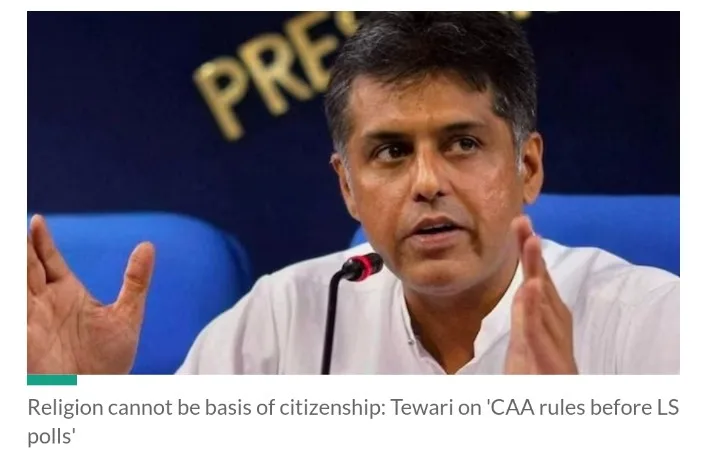In response to recent statements by a government official suggesting that rules for the Citizenship (Amendment) Act (CAA) 2019 would be notified “much before” the Lok Sabha elections, Congress MP Manish Tewari emphasized the principle that religion should not serve as the basis for citizenship. Tewari highlighted the contradiction with the country’s secular ideals enshrined in the Preamble of its Constitution.
The CAA, introduced by the Narendra Modi government, grants Indian nationality to persecuted non-Muslim migrants—Hindus, Sikhs, Jains, Buddhists, Parsis, and Christians—from Bangladesh, Pakistan, and Afghanistan who arrived in India before December 31, 2014. Massive protests erupted in various parts of the country after the CAA was passed by Parliament in December 2019.
Tewari, expressing his concerns, stated, “In a country that has Secularism enshrined in the Preamble of its Constitution, can religion be the basis of Citizenship whether extra-territorial or even territorial? The answer is no.” He pointed out that this fundamental question was central to his opposition to the CAA Bill in the Lok Sabha in December 2019 and remains a core issue in the ongoing legal challenge before the Supreme Court.
The MP from Punjab cautioned against the possibility of using religion as the basis for citizenship, even territorially, and urged vigilance to ensure that no insidious templates are being prepared in the name of reasonable classification to address religious persecution in neighboring regions.
PTI




